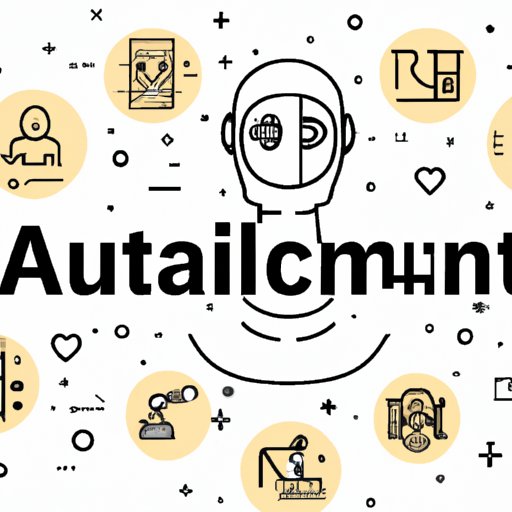Introduction
Artificial intelligence (AI) is defined as the simulation of human intelligence processes by machines, especially computer systems. AI has become increasingly popular in recent years, with advances in technology making it possible for machines to think, learn, and act independently. With the rise of AI, many are asking the question: Is AI a threat to humanity?
AI’s Impact on Human Jobs
One of the biggest concerns about the use of AI is its potential to take away jobs from humans. Automation and robotics have already taken over some manual labor positions, and there is a fear that AI could replace more complex jobs, such as those in finance or medicine. According to a study by McKinsey Global Institute, up to 800 million jobs worldwide could be displaced by automation by 2030.
However, while AI may replace certain jobs, it could also create new ones. For example, AI requires engineers to design and maintain the technology, and data scientists to analyze the data collected by AI systems. AI can also help streamline existing processes, freeing up workers to focus on more creative tasks. In this way, AI could actually increase job opportunities rather than take them away.

The Potential for AI to Enhance Human Life
AI has the potential to positively impact human life in several ways. For one thing, AI can be used in education to personalize learning experiences for students. AI-powered tools can assess a student’s progress in real time and provide personalized feedback and guidance. AI can also be used to diagnose and treat medical conditions, saving time and money for healthcare providers and patients alike.
In addition, AI can help businesses make better decisions based on data. AI-driven analytics can uncover patterns in large datasets that would otherwise be impossible to identify. This can help companies make better decisions about their products and services, leading to improved customer satisfaction.

The Ethical Considerations of AI
While AI has the potential to improve lives, it also raises ethical concerns. For example, there is a need to ensure that AI systems are fair and unbiased. AI algorithms are only as good as the data they are trained on, so if the data is biased, the resulting system will be biased as well. Additionally, AI systems must be able to understand and respect human values, such as privacy and autonomy.
Data privacy is another important ethical consideration. AI systems require access to large amounts of data, which can raise concerns about how this data is being used and who has access to it. Companies must ensure that data is securely stored and used responsibly.

The Pros and Cons of AI
Overall, there are both pros and cons to the use of AI. On the positive side, AI can help automate tedious tasks, free up workers for more creative endeavors, and improve decision-making in business. On the other hand, AI can lead to job displacement, raise ethical issues, and create security concerns.
The Future of AI
Experts predict that AI will continue to evolve and expand in the coming years. According to a survey by Gartner, AI will be a top strategic priority for businesses in 2021, and AI technologies such as machine learning and natural language processing will become even more widely used. It is likely that AI will continue to be integrated into more aspects of our lives, from transportation to healthcare.
Examining the Risks of AI for Humanity
Despite the potential benefits of AI, there are still risks associated with its use. One risk is the possibility of unintended consequences. AI systems are only as good as the data they are trained on, so if the data is incomplete or inaccurate, the results could be misleading or dangerous. Additionally, there is a risk of humans losing control of AI systems, as AI systems become more autonomous and capable of making decisions without human input.
Finally, there are security concerns associated with AI. AI systems require large amounts of data, which can be vulnerable to cyberattacks. Additionally, malicious actors could use AI to launch automated attacks or manipulate data to their own ends.
Conclusion
In conclusion, AI has the potential to improve human life in many ways. However, there are risks associated with its use, including job displacement, ethical issues, and security concerns. It is important for businesses to consider these risks carefully when deploying AI, and to ensure that AI systems are designed and operated responsibly. Ultimately, the future of AI will depend on how humanity chooses to use it.
(Note: Is this article not meeting your expectations? Do you have knowledge or insights to share? Unlock new opportunities and expand your reach by joining our authors team. Click Registration to join us and share your expertise with our readers.)
